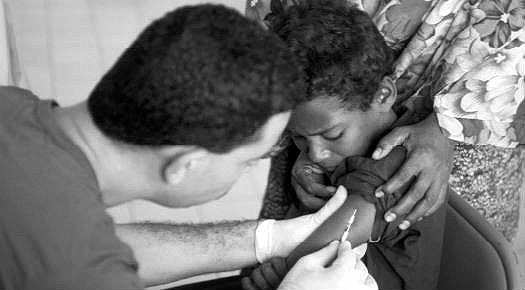
A rift between Kenya’s government and the Catholic Church over women receiving tetanus vaccines during their childbearing years has prompted the clergy to urge its adherents to oppose the injection, because they believe it to be part of a stealth birth control ploy.
Earlier this month, bishops met with the parliamentary health committee to report that the vaccine had been tested privately, for them to find out that it was laced with a birth control hormone, namely beta human chorionic gonadotropin. The doubts started creeping in during March this year, when bishops noticed that the vaccine was targeted towards women aged 14 years to 49 years and it did not concern men or young boys.
“We are calling on all Kenyans to avoid the tetanus vaccination campaign because we are convinced it is indeed a disguised population control program,” said Bishop Paul Kariuki, chairman of the Kenya Conference of Catholic Bishops’ health committee.
A regular tetanus shot is considered effective for as long as 10 years, with a booster provided to those who suffer injuries. The bishops also said they were concerned about the project when they learned it was being carried out in phases and being done so secretly.
“To our surprise, the Ministry of Health confirmed it had not tested the vaccine, having trusted it, since it originated from WHO (World Health Organization), a credible organization in matters of health,” said Kariuki.
The government has insisted repeatedly that the vaccine is completely safe, as World Health Organization and UNICEF have sanctioned it to at least 130 million women across 52 countries, all of whom are still in good health.
“These allegations are not backed up by evidence, and risk negatively impacting national immunizations programs for children and women,” the WHO and UNICEF statement said.
The Kenyan government started to provide the vaccination to its citizens in October last year.
“We have explained the science behind targeting the women,” said James Macharia, health ministry Cabinet secretary. “We have embarked on the campaign to speed up the elimination of the disease among women in the reproductive age.”
However, the bishops are of the opinion that when the regular tetanus vaccine is combined with beta human chorionic gonadotropin (HCG) and given to women in five doses every six months, they develop immunity for not only tetanus but also HCG, a hormone mandatory for women to get pregnant. Apparently, the body is unable to conceive subsequently, often suffering miscarriages and eventually leading to sterility.
In 1995, WHO had proposed a similar campaign in Kenya but it was not implemented, as Catholic bishops demanded the vaccine be tested independently. Reportedly, WHO decided to stop the campaign instead of giving them a sample for testing. However, the organization did conduct similar campaigns in Mexico in 1993 and the Philippines and Nicaragua in 1994. Kenya later went on to launch a similar program to eliminate tetanus among its 41 million population in 2001 but approximately one third of its districts remain classified as “high risk” until today.
On October 17 however, the government sent out an official statement, reiterating that the vaccine is completely safe for women and insisting that it would save the lives of millions of children.
“The tetanus vaccine is safe. … Maternal and neonatal tetanus continues to claim lives despite the availability of an effective vaccine. … The vaccine we are using in this campaign is the same one in the health facilities, including those run by the Catholic Church. … This is the same vaccine we also use in men, particularly when they are exposed to risk of cuts and open wounds,” medical services chief Nicholas Muraguri said in the statement, warning Kenyans of the risk of skipping the injection and calling tetanus a “silent killer.”
While almost a quarter of Kenyans are Roman Catholics, Kenya is also one of the 24 countries in the world that has failed to eliminate maternal neonatal tetanus, according to WHO’s estimates.
“What is immoral and evil is that the tetanus laced with HCG was given as a fertility regulating vaccine without disclosing its contraceptive effect to the girls and mothers,” said Wahome Ngare, a doctor and member of the Kenya Catholic Doctors Association.
Photo Credits: Wikimedia
